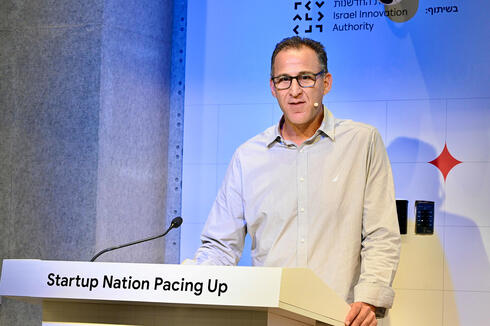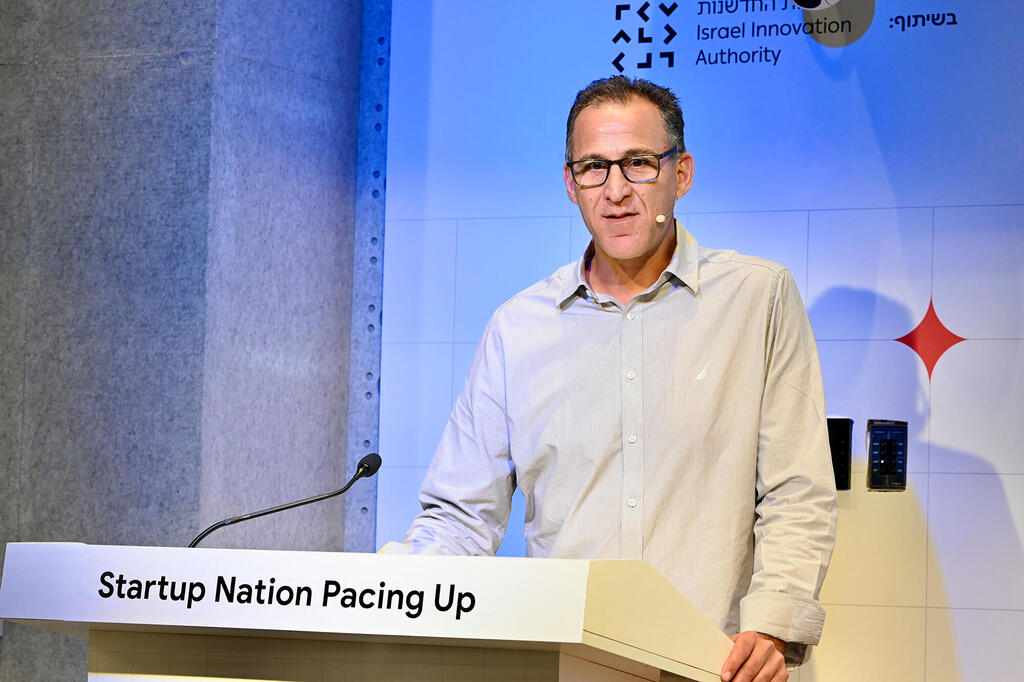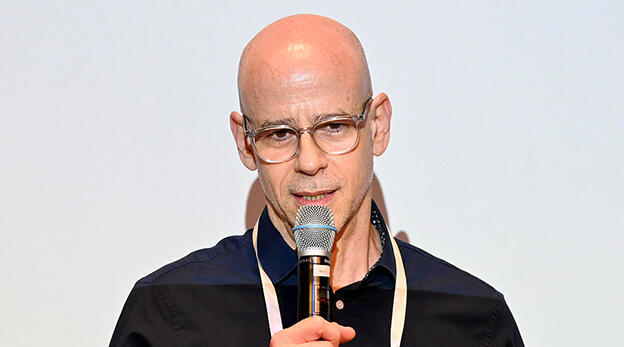
"A significant portion of Google’s global AI research happens in Israel"
Barak Regev, Managing Director and Site Lead of Google Israel, made the remarks at Google and Calcalist’s Startup Week event. “Our goal is to make AI accessible to everyone—not just developers or researchers, but to every person,” he added. Dror Bin, CEO of the Innovation Authority: “We’re surprised that 2024 turned out to be a strong year for Israeli high-tech."
“This year, we decided to give the conference a name that symbolizes our shared goal—the idea of marching forward together as a market, as an ecosystem,” said Barak Regev, Managing Director and Site Lead of Google Israel, at the opening of the Google and Calcalist Startup Week event. “We are going through a challenging period, both economically and locally. It’s been a year and a half of hardship, even a nightmare. But when we look at what’s happening in the world of technology—Israeli high-tech, Israeli entrepreneurship—it gives us energy and enthusiasm.”
Regev continued: “The AI revolution has been at the forefront of Google’s efforts for over a decade. Our goal is to make AI accessible to everyone—not just developers or researchers, but to every person. What’s unique about our approach is that we invest across all layers of the technology. The first is the infrastructure layer. Above that, we invest heavily in research—and a significant portion of Google’s global AI research happens in Israel. On top of the infrastructure and research layers are the models and tools, and then come the products and platforms.
“Google as a company is maturing and progressing at an incredible pace. Our language model, Gemini, is our flagship AI product. What excites me most right now is the launch of Gemini 2.5. It’s a unique model that enables reasoning about its own thought process—essentially allowing us to understand how it arrived at its conclusions. It also has advanced coding and analytical capabilities, and we’re seeing enormous adoption, with four million developers already using it. Many Israeli startups are working with us to implement the model.”
“Today,” Regev added, “we have seven products with over two billion monthly users. Google is integrating Gemini into every layer of its product ecosystem—and this is just the beginning. If we’re talking about AI tools, my personal favorite is NotebookLM. I use it to research topics I don’t have the time or background to explore deeply. I can even create a podcast from the material I feed into it, so I can listen to the content in the car.”
Regev also addressed the ethical implications: “AI raises many questions. We must remember that it introduces challenges around safety and security, and must be handled responsibly. That’s why we’re committed to working with responsible government partners, always thinking about how to build more responsible AI.”
Alongside Regev, Dror Bin, CEO of the Israel Innovation Authority, emphasized: “We’re surprised that 2024 turned out to be a strong year for Israeli high-tech. But at the Innovation Authority, we constantly ask ourselves: what are we missing? Something has shifted in the global paradigm. For decades, high-tech was driven by the private sector. But since 2019, we’ve entered a new era of government-funded technological competition—in areas like AI, semiconductors, and deep tech. And we must ask: where is Israel in this race?”
Bin continued: “The world is now divided between countries that produce technology and those that consume it. Israel is firmly on the producer side. In the context of the AI race, I believe we are in a strong position. Around 2,200 Israeli companies have adopted AI, and we lead the world in AI expert density. But I’m also concerned about the growing shortage of AI talent.”
He added that Israel still has work to do in integrating AI across industries: “Artificial intelligence will transform every aspect of life in Israel—work, education, healthcare. Many sectors are on the brink of dramatic change, and I don’t think we’re fully prepared. We need to start building strategic scenarios now. I hope the government can make the time to focus on this—despite the current challenges.”















